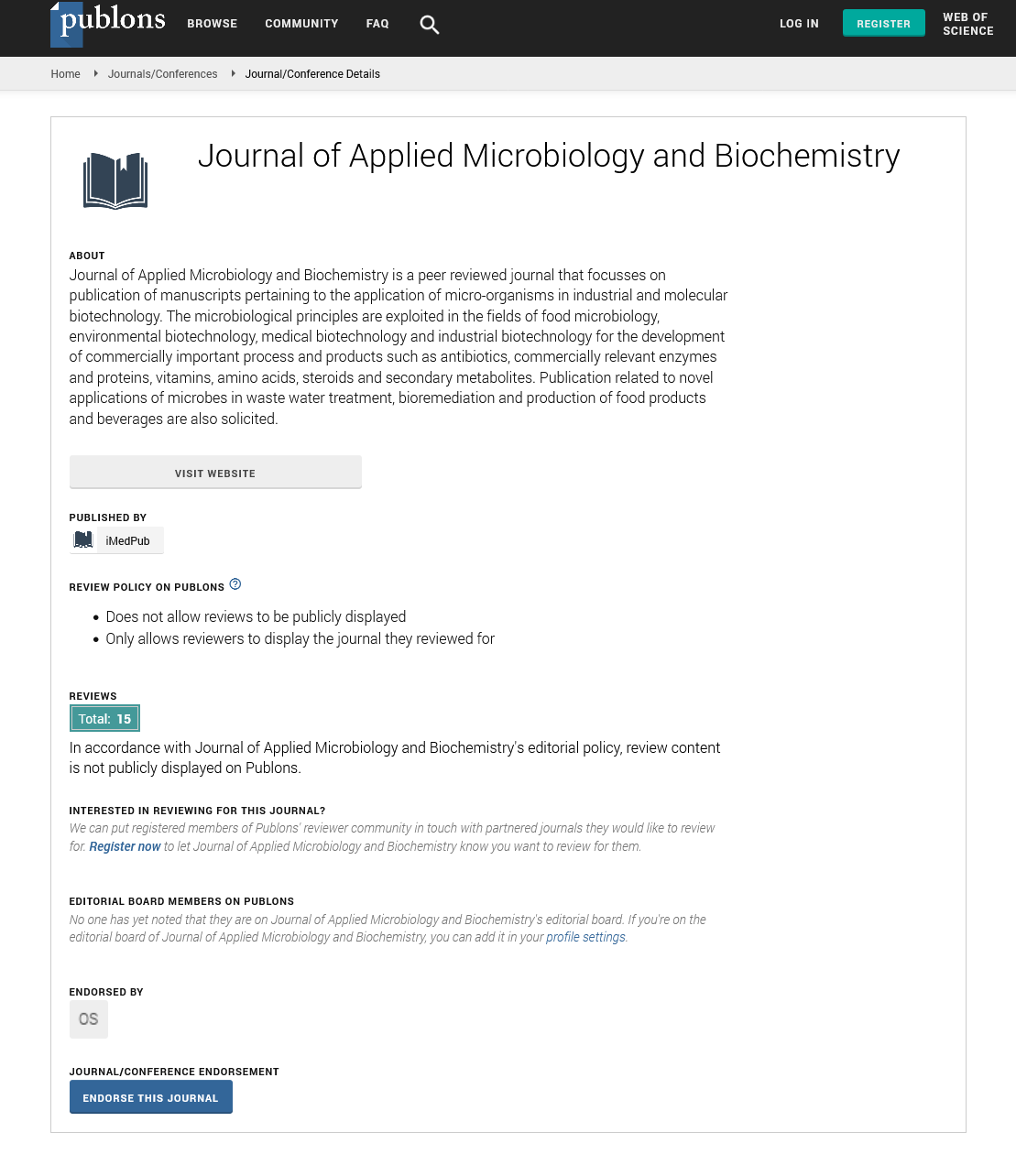ISSN : ISSN: 2576-1412
Journal of Applied Microbiology and Biochemistry
Abstract
Evaluation of Biotechnological Potential of Novel Mercury Tolerant Strain of Klebsiella Pneumonia
In order to investigate the effect of elevated mercury pollution on antibiotic tolerance and enzyme activities of human pathogens, we isolated a novel K. pneumoniae strain from the soil of a metallurgical dump yard that was capable of tolerating 250 μM HgCl2. Increasing concentration of Hg2+ in growth medium led to increased tolerance of the strain to ampicillin that was accompanied by increased secretion of extracellular polymeric substance (EPS). These results indicate that Hg2+-induced increased synthesis of EPS might be a key factor for increased tolerance of K. pneumoniae to ampicillin. The strain exhibited high catalase, alkaline phosphatase, mercuric reductase, amylase and lipase activity. Presence of 250 μM HgCl2 in growth medium increased mercuric reductase activity to 3 fold, however, no significant alteration in catalase, alkaline phosphatase and lipase was observed. The strain retained 86% amylase activity when grown in presence of 250 μM Hg2+. However, cell free lysate of the bacterium exhibited sensitivity towards Hg2+ leading to 30 to 40% decrease of these enzyme activities at 250 μM Hg2+. These results show that the bacterium possesses cellular mechanism to protect its enzymes from exogenous HgCl2. Our study reveals that increased heavy metal in the environment is a key factor leading to cross resistance of K. pneumoniae against membrane-targeted antibiotics ampicillin. Further, it’s a novel mercury-tolerant strain of K. pneumoniae isolate that exhibits high biotechnological potential for simultaneous bioremediation of mercury and production of industrially important enzymes.
Author(s): Himadri Gourav Behuria, Rashmi Shee, Sangam Gupta, Bijesh Kumar Biswal and Santosh Kumar Sahu
Abstract | Full-Text | PDF
Share This Article
Google Scholar citation report
Citations : 342
Journal of Applied Microbiology and Biochemistry received 342 citations as per Google Scholar report
Journal of Applied Microbiology and Biochemistry peer review process verified at publons
Abstracted/Indexed in
- Google Scholar
- China National Knowledge Infrastructure (CNKI)
- Cosmos IF
- Directory of Research Journal Indexing (DRJI)
- Publons
- Secret Search Engine Labs
Open Access Journals
- Aquaculture & Veterinary Science
- Chemistry & Chemical Sciences
- Clinical Sciences
- Engineering
- General Science
- Genetics & Molecular Biology
- Health Care & Nursing
- Immunology & Microbiology
- Materials Science
- Mathematics & Physics
- Medical Sciences
- Neurology & Psychiatry
- Oncology & Cancer Science
- Pharmaceutical Sciences
